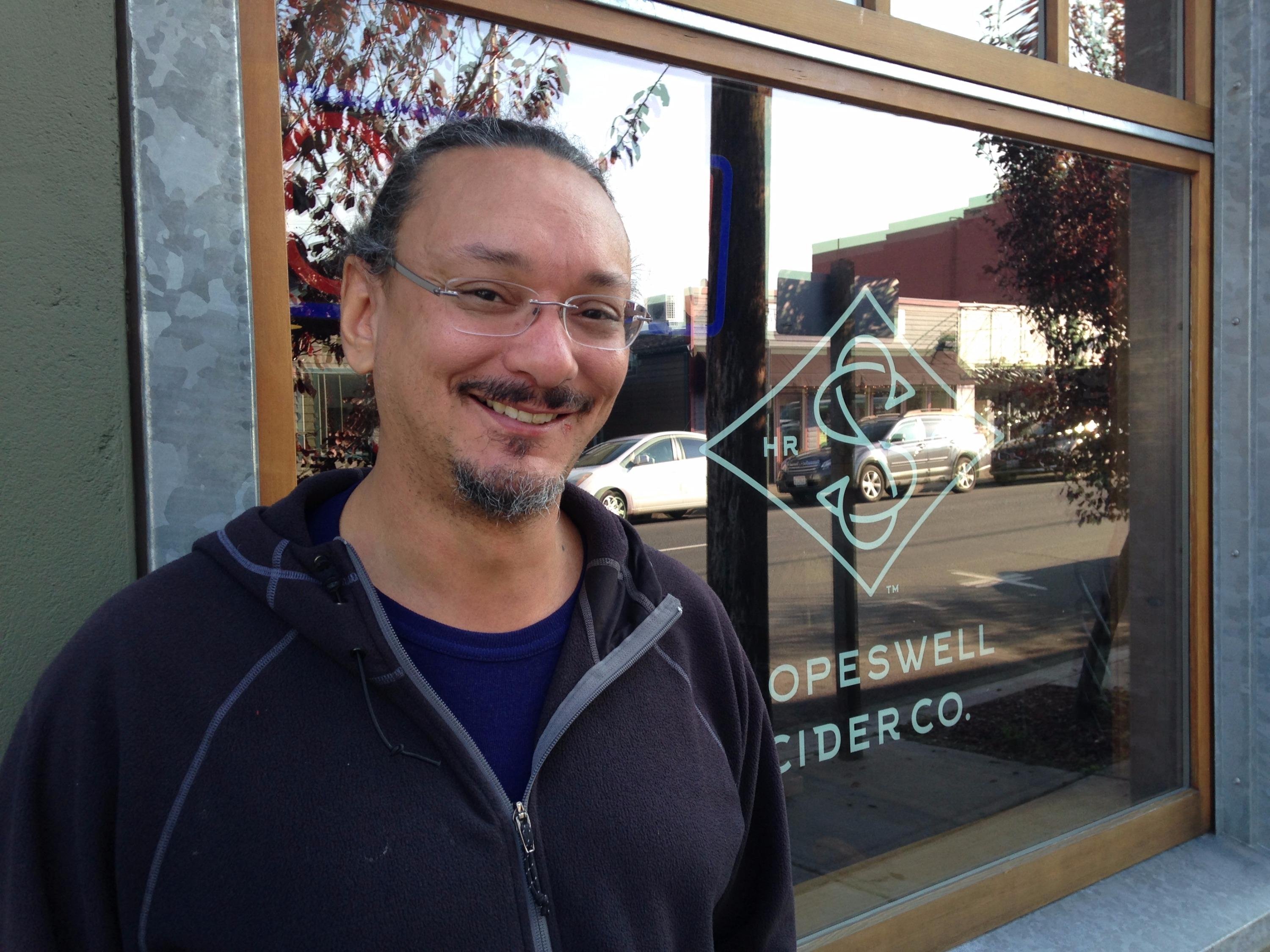
Hood River writer and cidermaker John Metta.
Anna Griffin / OPB
John Metta grew up thinking of himself as mixed race: His mother was white. His father’s side of the family proudly proclaimed themselves a blend of African-American and Native American.
"Actually, I grew up always being the Indian kid at school," he said. "I have pictures of myself in like fourth and fifth grade, and my hair was dead straight parted in the middle. I looked like the typical Native American."
The family wasn’t entirely clear on where that Native American element entered the mix — someone at some point had spent time on the Seneca reservation in Western New York. Still, they embraced their native side.
"The story I was told is that our family was a mix of escaped slaves very early on that married into the Native American population," Metta said. "One of the family stories we have is that the original people in my family came over in 1684, and they were Africans who saw a ship leaving Africa and told the captain that they knew the way to America. So they faked their way to America. So even my family's narrative of how we came over as slaves skirted the issue of being slaves."
In fact, his father had strict rules against what Metta jokingly refers to as “behaving too black.”
"My father was very, very angry if I spoke what we now call African-American vernacular English. Back then, it was just ghetto English or black English," he said. "‘I’m-a go, I’m-a finna go to the store.' He would be violent, like, ‘You will speak proper English or you will not live in this house.'”
A few years ago, Metta’s sisters got curious about precisely which tribes and parts of the country their relatives came from. They asked an uncle to swab his cheek and had the sample tested. How much Native American blood did they find?
"Nothing, not a drop. Literally more Neanderthal than Indian," Metta said. "And so immediately I did the test on myself, knowing that it would be affected by my mother. It was even clearer. It was sort of a mathematically perfect average between a German and a black American."
That story his family had told for all those years simply wasn’t true.
"There's a lot of anti-blackness in my black family, and a lot of that comes from, ‘We are black but not really black.’ Or, ‘We're not like them,’" he said.
“At the time, I didn't know how to internalize that lie. I was a new father trying to build a narrative for my children about our race. I married a white woman, and I have very light-skinned children, and I'm light-skinned myself, and I listen to Tori Amos, so … I'm trying to build a narrative for my children that respects black people even though they do not have the culture of Hood River, Oregon.”
Metta’s father died 20 years ago, so he never got a chance to ask why or how the family’s flawed narrative began. He suspects it goes back before his dad’s generation. The revelation has firmed Metta’s own resolve about his own racial identity — and that of his kids.
"Knowing what I know about how my family deals with their children, I totally think that they were thinking about their children, not about themselves. They wanted them to be better. And better is such a judgment, because better meant whiter," he said.
"At this point, I’m just black."